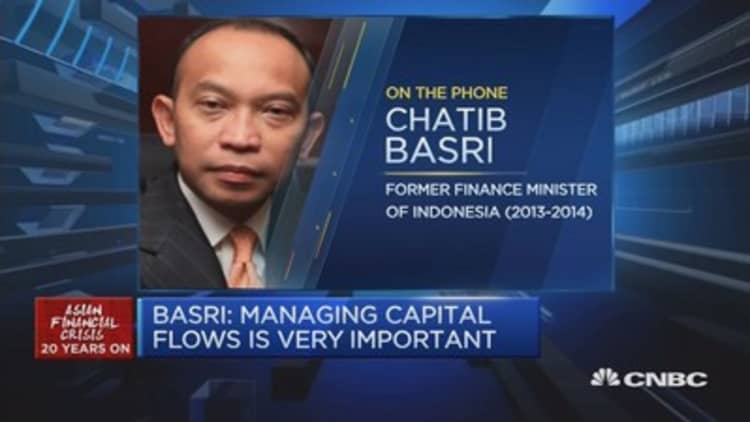Under pressure from widespread illegal narcotics distribution, Southeast Asia's largest economy has expressed a willingness to let authorities shoot down drug dealers, sparking fears the country could embark on a Philippine-style drug war.
In a speech last week, Indonesian President Joko Widodo, or Jokowi, said his country faced a "narcotics emergency" and recommended police to shoot drug traffickers who resisted arrest. "I have told you, just be firm, especially with foreign drug dealers who enter the country and resist [arrest]. Gun them down. Give no mercy," local news outlets quoted the leader as saying.
National Police Chief General Tito Karnavian also said last week that he had instructed police officers "not to hesitate shooting drug dealers who resist arrest," Indonesian media reported.
Such comments mirror those of Philippine President Rodrigo Duterte, who is accused of giving police free rein to kill drug suspects. Philippine police have the right to shoot if their lives are endangered when drug suspects resist arrest, according to Duterte's official instructions, but reports of extrajudicial executions are widespread.
In response, Human Rights Watch slammed Indonesian authorities.
"President Joko Widodo should send a clear and public message to the police that efforts to address the complex problems of drugs and criminality require the security forces to respect everyone's basic rights, not demolish them," Phelim Kine, the organization's Asia deputy director, said in a recent note.
Many believe Duterte's war on drugs, which has killed thousands, has jeopardized overall rule of law and democracy. Philippine Secretary of Foreign Affairs Alan Peter Cayetano, however, has criticized media for misrepresenting Duterte's policies.
If Indonesia, already weighed down by religious politics, embraces Duterte's controversial policies, analysts predicted an increase in societal divisions.
"Launching such a crackdown will be deeply controversial in Indonesia," said Anwita Basu, analyst at the Economist Intelligence Unit. "Violence of this kind is not well liked in the archipelago where democracy is maturing and people are increasingly becoming more engaged in politics."

Indonesia, which employs capital punishment for drug trafficking, has been gradually ramping up its roundup of suspected drug traffickers as it battles widespread use of crystal methamphetamine — earlier this month, authorities seized one ton of the addictive substance.
"The market that existed in the Philippines is moving to Indonesia, the impact of President Duterte's actions is an exodus to Indonesia, including the substance," Commissioner General Budi Waseso, head of Indonesia's narcotics agency, recently told Australia's ABC News. Waseso has previously called for police to emulate the Philippines' war.
For now, however, Jokowi isn't likely to embark on a drug war of the scale seen in the Philippines.
"There are some significant differences in the political careers of Jokowi and his counterpart in the Philippines," explained Basu. "Unlike Duterte, Jokowi does not have his own political party backing him — this means that he will need full support from the electorate and will have to continue to bargain with various parties who don't necessarily share the same views on drug crimes as he does."
Unveiling a drastic measure like a drug war wouldn't bode well for Jokowi's chances of reelection in 2019, she added, noting that the easy availability and cheapness of narcotics was a public health and social issue, not a criminal one.

